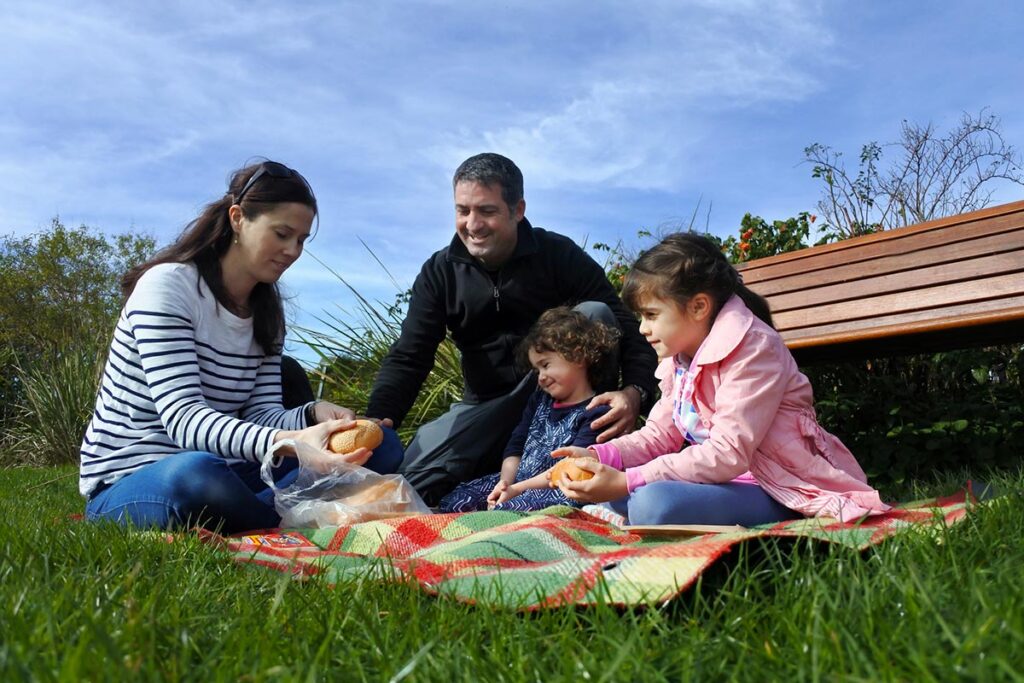
Israel is the fourth happiest country in the world just behind Finland, Denmark and Iceland, according to the UN-sponsored World Happiness Report, released this past Monday. The U.S., Australia, Canada, and the U.K. are among the top 20 happiest countries.
The data was collected between 2020 and 2022 before the government revealed its plans to overhaul the judicial system.
This week, we asked Israelis on the streets of Haifa to understand what’s behind Israel’s high score, and share four takeaways on what we can all learn about happiness.
Read our article below, or watch our video on the topic at Today Unpacked:
How does the report measure happiness?
To understand why Israelis are the fourth happiest people in the world, we need to start with how the creators of the World Happiness Report define happiness.
Something that’s got us smiling today?
— Israel ישראל (@Israel) March 20, 2023
Israel is the FOURTH happiest country according to this year’s World Happiness Report 🇮🇱#InternationalDayOfHappiness 💙
📸 Dana Friedlander, Itamar Grinberg for the Israeli Ministry of Tourism. pic.twitter.com/GQ99yY1Esn
According to Jeff Sachs, one of the creators of the report and a Columbia University professor, “It means the satisfaction with the way one’s life is going. It’s not primarily a measure of whether one laughed or smiled yesterday, but how one feels about the course of one’s life.”
The authors explain why they measure “life evaluation” rather than positive emotions:
“Life evaluations provide the most informative measure for international comparisons because they capture quality of life in a more complete and stable way than do emotional reports based on daily experiences.”
The rankings are calculated based on one simple question. The respondents are asked to “evaluate their current life as a whole…with the best possible life for them as a 10 and worst possible as a 0.”
In Israel, the average person evaluated their life at a 7 or 8.
The authors also included their estimates of how six factors — GDP per capita, healthy life expectancy, generosity, social support, freedom to make life choices, and perceptions of corruption — might account for each country’s score.
Why is Israel the fourth happiest country?
When we asked Israelis of diverse backgrounds about Israel’s high score, here’s what they said. Watch our video to hear from them directly.
This is the happiest news I've read in a while. https://t.co/JKl2f3tf7v
— Uri Pilichowski (@RationalSettler) March 20, 2023
“It could be because of the sun, because of the sea, all the good people, the insanely good food that we have here. I think we deserve to be in first place,” Yael told us.
“The state of Israel is number one in the whole world,” Musa explained. “We have lots of different cultures and languages, lots of joy, we have the sea, we have the land, we have the desert, we have the north, we have the south, we have a beautiful country.”
Others attributed Israel’s high score to an attitude of gratitude. “We’re always happy with what we have,” Oren said.
“I always try to find the good in every situation and to be as happy as I can with what I have,” Or agreed.
Meanwhile, Rabbi Yishai offered a spiritual and religious answer to the question. “Why is a person happy? Because he knows why he wakes up in the morning, he knows what his role is in the world.”
“We, the nation of Israel, we wake up in the morning, we say “Modeh Ani Lifanecha” [“I give thanks before You”]. We have a mission, to make the world a more spiritual place, a purer place with Torah and mitzvot. Therefore, we’re happy,” he added.
Meanwhile, Anat Fanti, a social science researcher at Bar Ilan University, told YNet News if the survey had been conducted after the judicial reform plan was announced, “its results would be different and Israel’s ranking would have been harmed.”
She attributed the high score largely to Israel’s swift economic recovery following the pandemic (although the score was the average of data collected from 2020 – 2022).

Times of Israel Editor David Horovitz agreed that Israel would score lower if the survey were conducted today, saying on the newspaper’s daily podcast that under the Naftali-Bennett government in 2021-2022, “We were doing quite well in healing rifts and living in some sort of harmony across all those rifts.”
“We have been a very happy people…and we need to revive that recognition of the need for internal harmony and coherence, mutual respect, and tolerance,” he added.
Israeli-born British journalist Miriam Shaviv saw it differently. She challenged the idea that Israel’s score would be lower today, emphasizing Israelis’ strong levels of social support.
“For all its internal divisions, Israel is still a country driven by family and community connections to an extent that is rare nowadays in the West,” she wrote in a Jewish Chronicle op-ed. “Even secular Israelis will have Friday night dinner together regularly and come together to celebrate festivals, Independence Day, births, bar and bat mitzvahs and huge weddings.”
Rather than being only an expression of division and discontent, “Israel’s peaceful yet determined protests can be seen as evidence of a strong social fabric, where people care not only about their own futures but also about the collective, and come together to effect positive change,” she added.
What can we all learn from Israelis about happiness?
Here are four takeaways that we can all learn from Israelis, wherever we live.
1. Israel is a purpose-driven society, so focus on something beyond yourself.

One of the Israelis we interviewed said: “If life has meaning, then life is happiness.”
Rabbi David Bashevkin expressed it this way: “The ultimate joy in life is knowing that your life is anchored in something beyond yourself.” (To hear more from Bashevkin about how happiness is defined in Jewish tradition, listen to our podcast.)
Most Jewish Israelis serve in the army which gives them a sense of meaning and purpose. And many say that simply being in Israel, the Jewish homeland, makes them feel part of something greater. Wherever we live, we can commit to something beyond ourselves.
2. Israel is a social, communally-oriented society, so prioritize your relationships.
According to Tal Ben-Shahar, an expert in positive psychology and the author of “Happier: No Matter What,” the number one predictor of happiness on both a personal and national level is relationships and social support.
Research shows that “this emphasis on relationships is…the most important thing we can learn and practice if our concern is happiness,” he told us.
He added that in Denmark — which is consistently ranked among the world’s happiest countries, coming in at #2 this year — over 90% of Danes are active members of social clubs, which explains their happiness levels.
The bottom line is that our life satisfaction and happiness is more about our relationships and social support than the specific location where we live.
3. Increase your happiness and well-being with the PERMA model.
In his book, “Flourish: A Visionary New Understanding of Happiness and Well-Being,” Martin Seligman, a founding leader of positive psychology, provides a very simple formula for joy, or “subjective well-being,” as he describes it.
Seligman uses the acronym PERMA to represent what he sees as the five key elements to happiness and well-being: Positive emotions, Engagement, Relationships, Meaning and Achievement.
For most of us, we do some elements of PERMA well, and others could use improvement. Building these particular elements is key to enhancing our well-being. Here’s a brief explanation of each one:
P — Positive emotions refers to the pleasant life, or feeling good. They include optimism, hope, joy, love, compassion, pride, amusement, and gratitude.
E — Engagement is the presence of a flow state or “being in the zone.” It is a measure of how absorbed you are in a given activity or experience. How often do you experience living completely in the present moment of what you are doing?
R — Relationships are everything. Focusing on relationships means being in the presence of family and friends, and sharing in the intimacy of those around you. When was the last time you laughed with best friends?
M — Meaning is the awareness that something is bigger than us. It’s when we experience a sense of belonging to or serving something beyond ourselves. It’s when we ask questions, engage in deeper conversations, clarify our purpose, and tell our story.
A — Achievement is what gives us a sense of accomplishment, and recognition and pride in what we’ve done. It could be finishing an assignment we’ve been pushing off, building a bookcase, or reaching a goal. That sense of accomplishment is critical for joy.
4. Incorporate hygge into your life.

“Hygge” (pronounced hoo-gah) is a Danish word for high-quality social interactions in a cozy or comfortable environment.
“A cup of coffee with a friend in front of a fireplace might qualify, as could a summer picnic in the park. A family might have a hygge evening that entails board games and treats, or friends might get together for a casual dinner with dimmed lighting, good food and easygoing fun,” Danish psychology professor Marie Helwif-Larsen wrote in The Conversation.
“Research on hygge has found that in Denmark, it’s integral to people’s sense of well-being. It acts as a buffer against stress, while also creating a space to build camaraderie,” she added.
If people added more hygge to their lives, it wouldn’t make our problems go away, but it would make the world a happier place.
Originally Published Mar 24, 2023 01:32PM EDT
